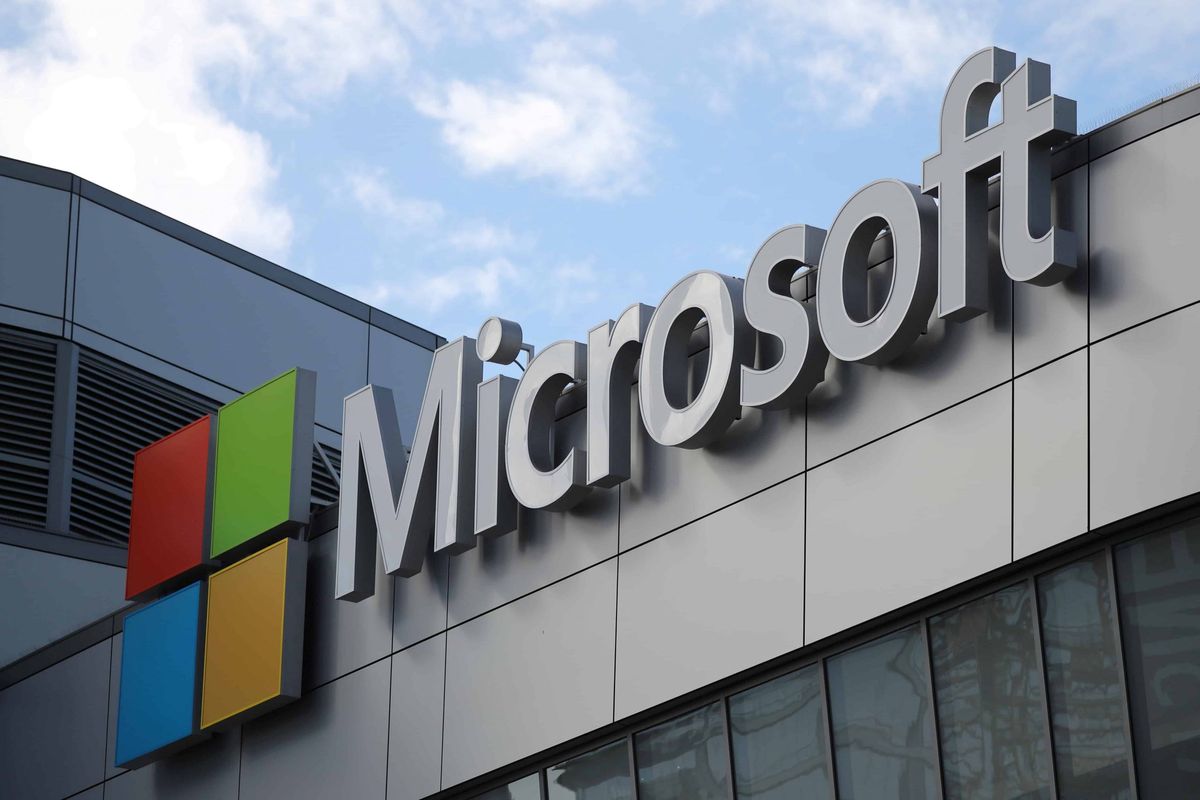Microsoft’s US$7.5 billion deal for ZeniMax could be a game-changer for next-generation consoles

A few minutes every morning is all you need.
Stay up to date on the world's Headlines and Human Stories. It's fun, it's factual, it's fluff-free.
The ZeniMax purchase is Microsoft’s attempt to change the rules for the upcoming battle of next-generation gaming consoles.
Microsoft Corporation recently announced that it will be acquiring ZeniMax Media Inc., the parent company of the video game developer and publisher Bethesda Softworks LLC in a US$7.5 billion deal that could have a significant impact upon the video game industry at large.
Bethesda, the developer and publisher behind such popular game series as “The Elder Scrolls,” “Fallout” and recent iterations of the “Doom” franchise, discussed the deal in a recent blog post, hailing its new partnership with Microsoft as the “perfect fit.”
The deal comes as the industry is preparing for the imminent release of the next-generation of gaming consoles. Microsoft will face serious competition from Japanese rival Sony Corporation, whose PlayStation 4 outsold Microsoft’s Xbox One by more than a two-to-one margin.
Microsoft’s purchase of ZeniMax is a bid to take the fight to Sony in the clash of next-generation consoles, particularly through supplementing its own Xbox Game Pass subscription service with more titles and more exclusivity to challenge Sony where Microsoft has all too often found itself beaten.
Microsoft’s purchase
Microsoft announced the acquisition of ZeniMax Media this September, in a US$7.5 billion dollar deal that will see Microsoft acquire Bethesda Softworks and its hosts of popular sub-studios.
Microsoft’s chief executive officer, Satya Nadella, hailed the purchase, stating that “with the acquisition of Bethesda, we metaphorically and literally double our gaming content capacity.”
It’s not hard to see why. Bethesda Softworks, based in Rockville, Maryland, is one of the biggest privately-held video game companies in the world, with a total of some 2,300 employees and some of the most popular gaming series to its name.
Bethesda’s “The Elder Scrolls V: Skyrim,” released in 2011, has gone on to sell around 30 million copies worldwide, making it one of the single bestselling video games of all time and clearly marking Bethesda as one of the most successful developers of the last few years.
The acquisition of ZeniMax increases the number of Microsoft’s in-house game development studios to 23, with Bethesda’s numerous sub-studios included.
Competing rivals
Microsoft’s purchase could have big implications, but the tech giant, based in Washington State, was only pushed to this deal as a result of the success of its biggest rival – Sony.
Both Microsoft and Sony have announced the latest iterations of their fast-selling hardware. Microsoft is launching two consoles – the Xbox Series X and Xbox Series S at US$499 and US$299 – on November 10.
Sony, meanwhile, is launching its flagship PlayStation 5 at US$499, with a cheaper, digital-only version (without the 4K Blu-ray Disc drive) at US$399 on November 12.
Microsoft has something of an uphill battle against Sony, despite the huge differences in the two companies.
Sony’s PlayStation 4 outsold Microsoft’s Xbox One by a margin of more than two-to-one in the last generation and the delay of 343 Industries’ anticipated “Halo: Infinite” until 2021 leaves Microsoft’s new Xbox Series X and S without a day-one exclusive.
Although more expensive, Sony’s PlayStation 5 is sticking to the approach that worked well for the PlayStation 4, arriving with numerous first-party (as in, produced by companies acquired by Sony) exclusive titles on day one in contrast to the lack of such titles available on the Xbox.
Industry-changing?
The ZeniMax purchase is Microsoft’s attempt to change the rules for the upcoming battle of next-generation gaming consoles.
According to Samuel Franklin, founder of games recommendation platform Games Finder, this purchase is a multibillion dollar statement from Microsoft “that they are not afraid to leverage their large pool of funds to secure control of industry leading titles.”
Announcing the acquisition just before preorders opened for the next generation Xbox, Microsoft has clearly recognized that “the threat of potential exclusive titles down the line” is a “factor for many gamers when choosing which console to support for this generation,” Franklin told TMS.
According to Matthew Kanterman of Bloomberg Intelligence, this acquisition allows Microsoft “a much bigger catalog of marquee titles and future new releases to bring into the service to drive more customer adoption,” with marquee titles notably absent from the next-generation Xbox’s release.
The ZeniMax purchase is also intrinsically connected to Microsoft’s aggressive promotion of its video game subscription service, the Xbox Game Pass.
The Game Pass has only continued to grow in recent months. Microsoft announced in September that the number of subscribers to the service had reached 15 million, a 50% increase on the 10 million subscribers previously announced in April.
In purchasing Bethesda Softworks, Microsoft can put Bethesda’s new releases straight onto its Game Pass. This will allow gamers, for only a US$10 monthly fee, to access hundreds of Xbox games at will, on both Xbox and PC platforms.
Rather than fighting Sony in the traditional manner – with big day-one titles made exclusive to competing platforms – Microsoft is attempting to carve out a new battleground, one where Microsoft presently holds a significant advantage over Sony and PlayStation.
Aaron Fletcher, CEO of esports company Repeat Technologies, Inc., told TMS that titles produced by the likes of Bethesda (and any other acquisitions Microsoft may make) could become “timed exclusives” rather than full “console exclusives,” with Microsoft using the titles “as leverage in their future talks about getting their Game Pass onto other devices.”
It is unlikely that Sony could itself make an acquisition with as great a knock-on effect as Microsoft’s ZeniMax purchase. Microsoft is valued at over US$1 trillion, compared to Sony’s market cap of around US$90 billion. The vast disparity in resources available to either side illustrates that tit-for-tat acquisitions are unlikely.
As Paul Tassi of Forbes writes, this could create a situation where consumers see games released for “free” on the Game Pass (subscription not included) and for around US$70 on PlayStation, which has yet to develop a competitor to Microsoft’s Game Pass service.
Although the next-generation Xbox is not launching with exclusives and in that sense is already losing out to the PlayStation 5, the Game Pass is and the ZeniMax acquisition is Microsoft’s bet that cheaper access to a vast set of video games via a subscription will be enough to bring gamers to that platform.
Rather than struggle against Sony in a day-one exclusivity battle, Microsoft is flexing its financial muscles by creating a new field of competition for the next-generation of gaming consoles, adding significant depth to its Game Pass and increasing its attractiveness to consumers.
It’s here, in subscription-based gaming, that Microsoft, not Sony, is dominant.
Have a tip or story? Get in touch with our reporters at tips@themilsource.com




Comments ()